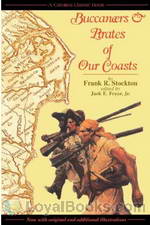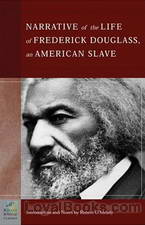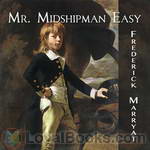|
Books Should Be Free Loyal Books Free Public Domain Audiobooks & eBook Downloads |
|
|
Books Should Be Free Loyal Books Free Public Domain Audiobooks & eBook Downloads |
|
History Books |
|---|
|
Book type:
Sort by:
View by:
|
By: Frank Norris (1870-1902) | |
|---|---|
 The Surrender of Santiago An Account of the Historic Surrender of Santiago to General Shafter, July 17, 1898
The Surrender of Santiago An Account of the Historic Surrender of Santiago to General Shafter, July 17, 1898
| |
By: Frank R. Stockton (1834-1902) | |
|---|---|
 Buccaneers and Pirates of Our Coasts
Buccaneers and Pirates of Our Coasts
Buccaneers and Pirates of our Coasts is a non-fiction, rolicking story of the origins of piracy and of the famous pirates of the coasts of the United States. The stories don’t cast pirates in the glowing light of modern day renditions – in Stockton’s stories, pirates are bad guys! – but the dramatic style makes them good fun to read, anyway! (Summary by Sibella Denton) | |
By: Frank Richard Stockton (1834-1902) | |
|---|---|
 Stories of New Jersey
Stories of New Jersey
| |
 Round-about Rambles
Round-about Rambles
ROUND-ABOUT RAMBLES, In Lands of FACT AND FANCYBY FRANK R STOCKTONPREFACECome along, boys and girls! We are off on our rambles. But please do not ask me where we are going. It would delay us very much if I should postpone our start until I had drawn you a map of the route, with all the stopping-places set down. We have far to go, and a great many things to see, and it may be that some of you will be very tired before we get through. If so, I shall be sorry; but it will be a comfort to think that none of us need go any farther than we choose... | |
By: Frank Stevens | |
|---|---|
 Stonehenge Today and Yesterday
Stonehenge Today and Yesterday
| |
By: Franklin D. Roosevelt (1882-1945) | |
|---|---|
 Franklin Delano Roosevelt's First Inaugural Address
Franklin Delano Roosevelt's First Inaugural Address
| |
By: Franklin Hichborn (1869?-1964) | |
|---|---|
 Story of the Session of the California Legislature of 1909
Story of the Session of the California Legislature of 1909
| |
By: Franklin Knight Lane (1864-1921) | |
|---|---|
 Letters of Franklin K. Lane
Letters of Franklin K. Lane
| |
By: Fred Richards (1878-1932) | |
|---|---|
 Rome A Sketch-Book
Rome A Sketch-Book
| |
By: Fred W. Ward | |
|---|---|
 The 23rd (Service) Battalion Royal Fusiliers (First Sportsman's) A Record of its Services in the Great War, 1914-1919
The 23rd (Service) Battalion Royal Fusiliers (First Sportsman's) A Record of its Services in the Great War, 1914-1919
| |
By: Frederic Austin Ogg (1878-1951) | |
|---|---|
 The Old Northwest : A chronicle of the Ohio Valley and beyond
The Old Northwest : A chronicle of the Ohio Valley and beyond
| |
By: Frederic C. Curry | |
|---|---|
 From the St. Lawrence to the Yser with the 1st Canadian brigade
From the St. Lawrence to the Yser with the 1st Canadian brigade
| |
By: Frederic Courtland Penfield (1855-1922) | |
|---|---|
 East of Suez Ceylon, India, China and Japan
East of Suez Ceylon, India, China and Japan
| |
By: Frederic George Trayes (1871-) | |
|---|---|
 Five Months on a German Raider Being the Adventures of an Englishman Captured by the 'Wolf'
Five Months on a German Raider Being the Adventures of an Englishman Captured by the 'Wolf'
| |
By: Frederic Harrison (1831-1923) | |
|---|---|
 Studies in Early Victorian Literature
Studies in Early Victorian Literature
| |
By: Frederic Kidder (1804-1885) | |
|---|---|
 The Abenaki Indians Their Treaties of 1713 & 1717, and a Vocabulary
The Abenaki Indians Their Treaties of 1713 & 1717, and a Vocabulary
| |
By: Frederic L. (Frederic Logan) Paxson (1877-1948) | |
|---|---|
 The New Nation
The New Nation
| |
By: Frederic S. (Frederic Swartwout) Cozzens (1818-1869) | |
|---|---|
 Acadia or, A Month with the Blue Noses
Acadia or, A Month with the Blue Noses
| |
By: Frederic W. Moorman (1872-1919) | |
|---|---|
 Yorkshire Dialect Poems (1673-1915) and traditional poems
Yorkshire Dialect Poems (1673-1915) and traditional poems
| |
 Songs of the Ridings
Songs of the Ridings
| |
By: Frederick A. Ober (1849-1913) | |
|---|---|
 Amerigo Vespucci
Amerigo Vespucci
| |
 Vasco Nuñez de Balboa
Vasco Nuñez de Balboa
| |
 "Old Put" The Patriot
"Old Put" The Patriot
| |
By: Frederick Arthur Ambrose Talbot (1880-) | |
|---|---|
 Sixteen Months in Four German Prisons Wesel, Sennelager, Klingelputz, Ruhleben
Sixteen Months in Four German Prisons Wesel, Sennelager, Klingelputz, Ruhleben
| |
By: Frederick C. (Frederick Charles) Hicks (1875-) | |
|---|---|
 Selected Official Documents of the South African Republic and Great Britain A Documentary Perspective Of The Causes Of The War In South Africa
Selected Official Documents of the South African Republic and Great Britain A Documentary Perspective Of The Causes Of The War In South Africa
| |
By: Frederick Davis Greene (1853-1940) | |
|---|---|
 Armenian Crisis in Turkey
Armenian Crisis in Turkey
Frederick Greene shows in this book that the case of the subject races in the Ottoman Empire is desperate, that there is no hope of reform from within, and that relief vimust therefore come through the interference of the powers of Europe. Their action depends largely on the support of the public. “Public opinion,” therefore, “must be brought to bear upon this case,” as Mr. Gladstone said in the House of Commons six years ago. Since then there has been added a new chapter of horrors, and the demand for decisive action in the name of our common humanity has become more urgent... | |
By: Frederick Douglas How (1853-) | |
|---|---|
 Oxford
Oxford
| |
By: Frederick Douglass (1818-1895) | |
|---|---|
 Narrative of the Life of Frederick Douglass
Narrative of the Life of Frederick Douglass
Frederick Douglass was born into slavery on a Maryland plantation. He faced hardship as a child, but later encountered owners who were relatively liberal and allowed him to learn to read, write and be in contact with freed slaves. At the age of 20, he escaped from the plantation and made his way to New York. Though he remained a fugitive, he married and changed his name to avoid being caught. He continued his education and became involved in the Abolitionist Movement. He began touring the country, speaking passionately about the unjust, cruel and inhuman practice of slavery... | |
By: Frederick Edwin Smith Birkenhead (1872-1930) | |
|---|---|
 The Story of Newfoundland
The Story of Newfoundland
| |
By: Frederick George Scott (1861-1944) | |
|---|---|
 The Great War As I Saw It
The Great War As I Saw It
| |
By: Frederick Herman Tilberg (1895-1979) | |
|---|---|
 Antietam National Battlefield, Maryland
Antietam National Battlefield, Maryland
The American Civil War battle at Antietam, Maryland, on 17 September 1862, has been called the bloodiest day of that conflict. Confederate General Lee’s invasion of the North was repulsed, and when the fighting ended, the course of the Civil War had been greatly altered. This victory by the North moved President Abraham Lincoln to issue The Emancipation Proclamation, freeing all slaves in states then in rebellion against the Union. This 1960 publication is number 31 in the Historical Handbook series put out by the U... | |
 Gettysburg National Military Park, Pennsylvania
Gettysburg National Military Park, Pennsylvania
On the gently rolling farm lands surrounding the little town of Gettysburg, Pa., was fought one of the great decisive battles of American history. For 3 days, from July 1 to 3, 1863, a gigantic struggle between 75,000 Confederates and 88,000 Union troops raged about the town and left 51,000 casualties in its wake. Heroic deeds were numerous on both sides, climaxed by the famed Confederate assault on July 3 which has become known throughout the world as Pickett’s Charge. The Union victory gained on these fields ended the last Confederate invasion of the North and marked the beginning of a gradual decline in Southern military power... | |
By: Frederick Hoffman | |
|---|---|
 A Sailor of King George
A Sailor of King George
| |
By: Frederick Jackson Turner (1861-1932) | |
|---|---|
 Rise of the New West, 1819-1829
Rise of the New West, 1819-1829
| |
 The Character and Influence of the Indian Trade in Wisconsin
The Character and Influence of the Indian Trade in Wisconsin
| |
By: Frederick James Furnivall (1825-1910) | |
|---|---|
 Early English Meals and Manners
Early English Meals and Manners
| |
By: Frederick John Lazell (1870-1940) | |
|---|---|
 Some Summer Days in Iowa
Some Summer Days in Iowa
| |
 Some Spring Days in Iowa
Some Spring Days in Iowa
| |
By: Frederick L. (Frederick Lyman) Hitchcock | |
|---|---|
 War from the Inside The Story of the 132nd Regiment Pennsylvania Volunteer Infantry in the War for the Suppression of the Rebellion, 1862-1863
War from the Inside The Story of the 132nd Regiment Pennsylvania Volunteer Infantry in the War for the Suppression of the Rebellion, 1862-1863
| |
By: Frederick Lewis Maitland (1777-1839) | |
|---|---|
 The Surrender of Napoleon Being the narrative of the surrender of Buonaparte
The Surrender of Napoleon Being the narrative of the surrender of Buonaparte
| |
By: Frederick Litchfield | |
|---|---|
 Illustrated History of Furniture
Illustrated History of Furniture
From the Earliest to the Present TimeBy Frederick Litchfield.PREFACE.In the following pages the Author has placed before the reader an account of the changes in the design of Decorative Furniture and Woodwork, from the earliest period of which we have any reliable or certain record until the present time. A careful selection of illustrations has been made from examples of established authenticity, the majority of which are to be seen, either in the Museums to which reference is made, or by permission of the owners; and the representations of the different interiors will convey an idea of the character and disposition of the furniture of the periods to which they refer... | |
By: Frederick Marryat (1792-1848) | |
|---|---|
 The Children of the New Forest
The Children of the New Forest
The children of Colonel Beverley, a Cavalier officer killed at the Battle of Naseby are believed to have died in the flames when their house, Arnwood, is burned by Roundhead soldiers. However, they escape and are raised by Joseph Armitage, a gamekeeper in his cottage in the New Forest. The story describes how the children adapt from anaristocratic lifestyle to that of simple cottagers. The children are concealed as the grandchildren of Armitage. Eventually after Armitage’s death, Edward Beverley leaves and works as a secretary for the sympathetic Puritan placed in charge of the Royal land in the New Forest... | |
 Mr. Midshipman Easy
Mr. Midshipman Easy
One of the first novel-length pieces of nautical fiction, MR. MIDSHIPMAN EASY (1836) is a funny and easygoing account of the adventures of Jack Easy, a son of privilege who joins the Royal Navy. The work begins as a satire on Jack’s attachment to “the rights of man” that may try the listener’s patience. But despair not, for the story soon settles down as the philosophical midshipman begins his many triumphs over bullies, foul weather, and various damned foreigners of murderous intent.Caveat audiens: This novel employs racial/ethnic epithets and religious stereotypes, as well as taking a rather sunny view of supply-side economics... | |
 Diary in America, Series Two
Diary in America, Series Two
| |
 The King's Own
The King's Own
| |
 Jacob Faithful
Jacob Faithful
Rebelling against the career chosen for him by his wealthy family, Frederic Marryat joined the Royal Navy in 1806 at the age of 14. He first served as a midshipman in the 38-gun frigate "HMS Imperieuse" commanded by Lord Cochran, 10th Earl of Dundonald whose real life exploits were used by Marryat in his fiction and which formed the basis for other famous fictional characters like Horatio Hornblower and Jack Aubrey. Having survived more than 50 sea battles and attained the rank of Post Captain, he resigned from the Navy and devoted the rest of his life to writing, drawing a good deal on his distinguished career in the Navy and is now considered the Father of Modern Nautical Fiction... | |
 Frank Mildmay Or, the Naval Officer
Frank Mildmay Or, the Naval Officer
| |
 Percival Keene
Percival Keene
| |
 Newton Forster The Merchant Service
Newton Forster The Merchant Service
| |
 Peter Simple; and, The Three Cutters, Vol. 1-2
Peter Simple; and, The Three Cutters, Vol. 1-2
| |
 Naval Officer, or Scenes in the Life and Adventures of Frank Mildmay
Naval Officer, or Scenes in the Life and Adventures of Frank Mildmay
Marryat was a midshipman under Captain Cochrane and this, his first naval adventure, is considered to be a highly autobiographical telling of his adventures with one of Britain's most famous and daring naval captains. | |
 Newton Forster
Newton Forster
| |
 Diary in America, Series One
Diary in America, Series One
| |
By: Frederick O'Brien (1869-1932) | |
|---|---|
 Mystic Isles of the South Seas.
Mystic Isles of the South Seas.
| |
By: Frederick R. (Frederick Ritchie) Bechdolt (1874-1950) | |
|---|---|
 When the West Was Young
When the West Was Young
| |